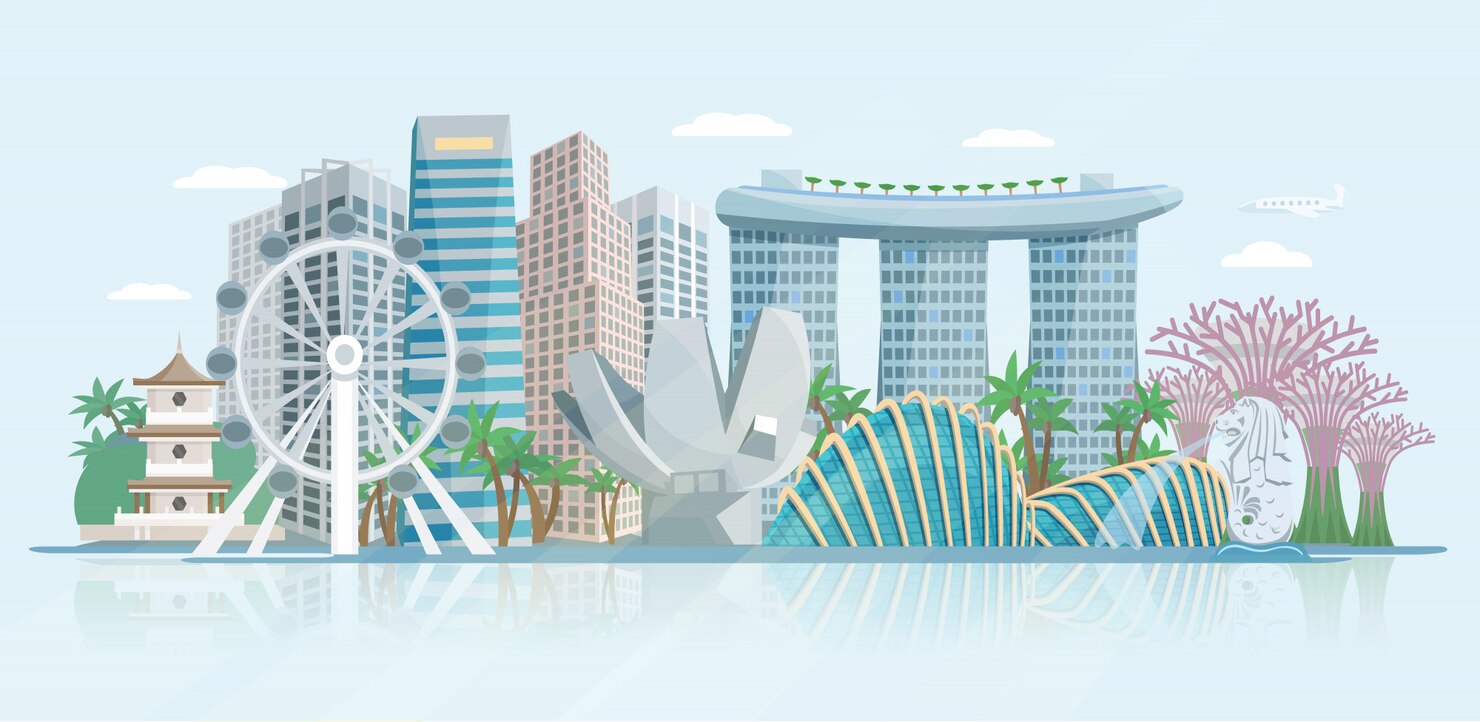Singapore, the “Lion City,” is a year-round destination with its tropical climate, diverse cultural festivals, and modern attractions. However, to truly maximize your experience, timing your visit to align with the city’s most favorable weather, fewer crowds, and exciting events can make all the difference. This guide will help you determine the best time to visit Singapore, ensuring a memorable trip.
Best Time to Visit: February to April and September to November
The ideal periods to visit Singapore are from February to April and September to November. These months fall outside the peak tourist seasons and offer several advantages that can enhance your travel experience.
Comfortable Weather
During these shoulder seasons, Singapore experiences mild temperatures ranging from 23°C to 30°C (73°F to 86°F). The humidity levels are also more bearable compared to other parts of the year, making it an excellent time for sightseeing and outdoor activities. Whether you’re strolling through the iconic Gardens by the Bay or exploring the Singapore Zoo, the pleasant weather ensures a comfortable experience.
Fewer Crowds
One of the main benefits of visiting Singapore during these periods is the relatively fewer crowds. The peak tourist seasons, particularly from June to August and December to January, can see a surge in visitors, leading to longer wait times at attractions and higher accommodation prices. By choosing to visit in the shoulder seasons, you can enjoy a more relaxed atmosphere, with less hustle and bustle at popular spots like Marina Bay Sands and Sentosa Island.
Festivals and Events: Adding Flavor to Your Trip
Singapore is known for its vibrant cultural scene, and visiting during February to April or September to November allows you to partake in some of the city’s most exciting festivals:
- Chinese New Year (February): This is one of Singapore’s grandest celebrations, marked by colorful parades, lion dances, and stunning fireworks. The city comes alive with festive decorations, particularly in Chinatown, offering a unique cultural experience.
- Holi (March): While Holi is traditionally an Indian festival, it is joyfully celebrated in Singapore as well. Expect vibrant color-throwing events, music, and dancing in various parts of the city, especially in Little India.
- Deepavali (October/November): Also known as the Festival of Lights, Deepavali is celebrated with illuminated streets, intricate rangoli designs, and festive markets in Little India. The atmosphere is filled with joy and spiritual significance, making it a special time to visit.
- Singapore Grand Prix (September): If you’re a fan of Formula 1, plan your visit around the Singapore Grand Prix. Held in September, this night race is a thrilling event that attracts motorsport enthusiasts from around the world. The race is accompanied by concerts and parties, adding to the excitement.
Outdoor Activities
The mild and pleasant weather during these periods is perfect for outdoor activities. Singapore’s numerous parks, gardens, and outdoor attractions are best enjoyed when the weather is not too hot or rainy. You can take a leisurely walk through the Singapore Botanic Gardens, a UNESCO World Heritage site, or enjoy a day at Sentosa’s beaches and adventure parks. The comfortable temperatures also make it easier to explore the city’s many outdoor food markets, where you can savor local delicacies.
Better Deals
Traveling during the shoulder seasons often comes with the added perk of better deals on hotels and attractions. Many accommodations offer discounts to attract visitors during these less crowded months, making it a cost-effective time to experience Singapore’s luxury hotels or unique boutique stays. Additionally, some attractions may offer promotions or special packages during these periods, allowing you to stretch your travel budget further.
Times to Avoid
While Singapore is a fantastic destination year-round, there are certain periods you might want to avoid if you’re looking for the most comfortable and affordable experience.
Peak Summer Months (June-August)
The months of June to August bring sweltering heat and high humidity levels to Singapore. Coupled with the school holidays in many countries, this period sees a significant influx of tourists, leading to crowded attractions and higher prices for flights and accommodations. If you prefer a more relaxed visit, it’s best to avoid these months.
Year-End Holidays (December-January)
The December to January period is another peak season, driven by the year-end holidays. While the festive atmosphere is enchanting, with Christmas lights and New Year celebrations, the large crowds and higher prices can be a drawback. If you don’t mind the hustle and bustle, it can still be a magical time, but for those seeking a quieter experience, it’s better to visit earlier in the year.
National Day Parade (August 9th)
Singapore’s National Day Parade is a significant event held on August 9th, celebrating the country’s independence. While it’s an exciting time to witness national pride and spectacular performances, it also means large crowds and road closures, particularly around the Marina Bay area. If you’re not specifically visiting for the parade, you may want to avoid this date to avoid disruptions to your travel plans.
Singapore is Always a Good Idea
In conclusion, while February to April and September to November are the best times to visit Singapore for comfortable weather, fewer crowds, and exciting festivals, the city truly is a year-round destination. Even during the peak seasons, there’s always something to enjoy, whether it’s the vibrant cultural scene, world-class attractions, or simply the warm hospitality of its people. So, no matter when you choose to visit, Singapore promises a delightful experience that will leave you wanting to return.
If you’d like to check out more about exploring Singapore, check out our tips section.

No responses yet